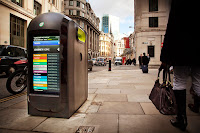You have to hand it to first direct. At a time when many financial institutions are still umming and ahhing over social media, they have dived head first into the deep end.
The bank recently relaunched its customer website, www.firstdirect.com. It used its crowdsourcing venture, firstdirectLab, to gather the thoughts and opinions of the public on how the site could be improved. And post-launch, it has invited people to say how they have done on the design, layout and general feel.
So far, the new look site has received less than stellar customer reviews. At the last count, 849 people had left comments and there was an average rating of two stars (out of five). Feedback has included: 'This seems a backward step for FD. The site appears to have been design by an eleven year old!' and 'Horrid!! I can't see anything useful...hate black and white (have probs with sharp contrast - dyslexia eye condition (very common)...HATE IT!'
If I were a first direct customer, I would be thinking, it's great that these guys value my input and provide such good customer service. On the other hand, I can picture agitated members of senior management saying: "Gah! Why are we making it so easy for them to slag us off?" Ultimately, though, this makes the bank look transparent and streets ahead of its rivals. If it has to take a few hits along the way, then so be it. To quote Natalie Cowen, head of brand at first direct: "We wanted to create a space for our customers to take online banking beyond a purely transactional relationship and create more of a first direct community, in short, creating 'online banking with chemistry'."
Let's just hope this doesn't turn out to be a bold experiment halted after management get cold feet.
The bank recently relaunched its customer website, www.firstdirect.com. It used its crowdsourcing venture, firstdirectLab, to gather the thoughts and opinions of the public on how the site could be improved. And post-launch, it has invited people to say how they have done on the design, layout and general feel.
So far, the new look site has received less than stellar customer reviews. At the last count, 849 people had left comments and there was an average rating of two stars (out of five). Feedback has included: 'This seems a backward step for FD. The site appears to have been design by an eleven year old!' and 'Horrid!! I can't see anything useful...hate black and white (have probs with sharp contrast - dyslexia eye condition (very common)...HATE IT!'
If I were a first direct customer, I would be thinking, it's great that these guys value my input and provide such good customer service. On the other hand, I can picture agitated members of senior management saying: "Gah! Why are we making it so easy for them to slag us off?" Ultimately, though, this makes the bank look transparent and streets ahead of its rivals. If it has to take a few hits along the way, then so be it. To quote Natalie Cowen, head of brand at first direct: "We wanted to create a space for our customers to take online banking beyond a purely transactional relationship and create more of a first direct community, in short, creating 'online banking with chemistry'."
Let's just hope this doesn't turn out to be a bold experiment halted after management get cold feet.







